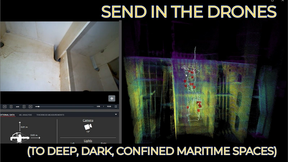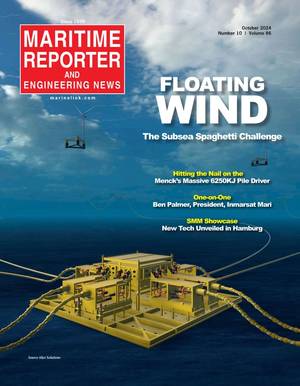The chief engineers of two American-flagged car-carrier ships based in Baltimore have pleaded guilty to criminal charges related to the deliberate discharge of oil-contaminated bilge waste through "magic pipes" that bypassed required pollution prevention equipment, announced Acting Assistant Attorney General Matthew J. McKeown for the Department of Justice's Environment and Natural Resources Division and U.S. Attorney for the District of Maryland Rod J. Rosenstein.
Stephen Karas, the former chief engineer of the M/V Tanabata (renamed the M/V Resolve) pleaded guilty today to conspiracy and making false statements before U.S. District Judge William M. Nickerson. Deniz Sharpe, the former chief engineer of the M/V Fidelio (renamed the M/V Patriot), pleaded guilty on March 7, 2007 to violating the Act to Prevent Pollution form Ships (APPS). Both Karas and Sharpe were employed by Pacific Gulf Marine Inc. (PGM), a vessel operator based in Gretna, La.
PGM pleaded guilty to charges related to its role in deliberately discharging hundreds of thousands of gallons of oil-contaminated bilge waste from four of its giant car-carrier ships used to transport vehicles, including the Tanabata and Fidelio. The shipping company was sentenced on Jan. 24, 2007, to pay $1 million criminal fines and $500,000 in community service, and serve three years of probation under the terms of an environmental compliance plan which will be audited by a court-appointed monitor.
According to documents filed in court, including a grand jury indictment and a factual statement signed by Karas, the Tanabata had a removable bypass pipe that was used repeatedly to discharge oil-contaminated bilge waste overboard in violation of the APPS. Karas admitted to the use of a bypass pipe and to concealing the pipe during port calls in the United States to prevent its discovery by the Coast Guard. Karas also admitted to concealing the unlawful discharges in a false oil record book, a required log regularly inspected by the Coast Guard. The log claimed the discharges were being made through the oily water separator, a required pollution prevention device, when in reality it was being bypassed entirely.
During a March 29, 2003, Coast Guard inspectors in Baltimore lifted a deckplate and found a permanently installed bypass pipe on the Fidelio that was part of the ship's original construction. The Coast Guard directed the removal of the bypass pipe which was filled with black oil, according to papers filed in court. Sharpe, who was promoted to chief engineer sometime after the inspection, continued making unlawful discharges through a new method that involved the use of a fire pump which were concealed with a false oil record book for the ship.
Engine room operations on board large ocean-going vessels generate large amounts of waste oil and oil-contaminated bilge waste. International and U.S. law prohibit the discharge of waste containing more than 15 parts per million oil and without treatment by an oil water separator and oil sensing equipment. The regime, established by the MARPOL Convention (Annex I)-a treaty signed by more than 135 countries representing approximately 97.5 % of the world's commercial tonnage and implemented into U.S. law by the APPS - also requires that overboard discharges be recorded in an oil record book.
Another chief engineer of the Tanabata remains under indictment and the investigation is continuing. An indictment represents allegations brought by a grand jury. Defendants are presumed innocent until proven guilty.
Featured videos

Taking the First Step Toward Autonomy

Send in the Drones (to deep, dark, confined maritime spaces)
October 2024
 Read the Magazine
Read the Magazine

 Read the Magazine
Read the Magazine
This issue sponsored by:

One-on-One: Ben Palmer, President, Inmarsat Maritime
Subscribe for
Maritime Reporter E-News
Maritime Reporter E-News is the maritime industry's largest circulation and most authoritative ENews Service, delivered to your Email five times per week









